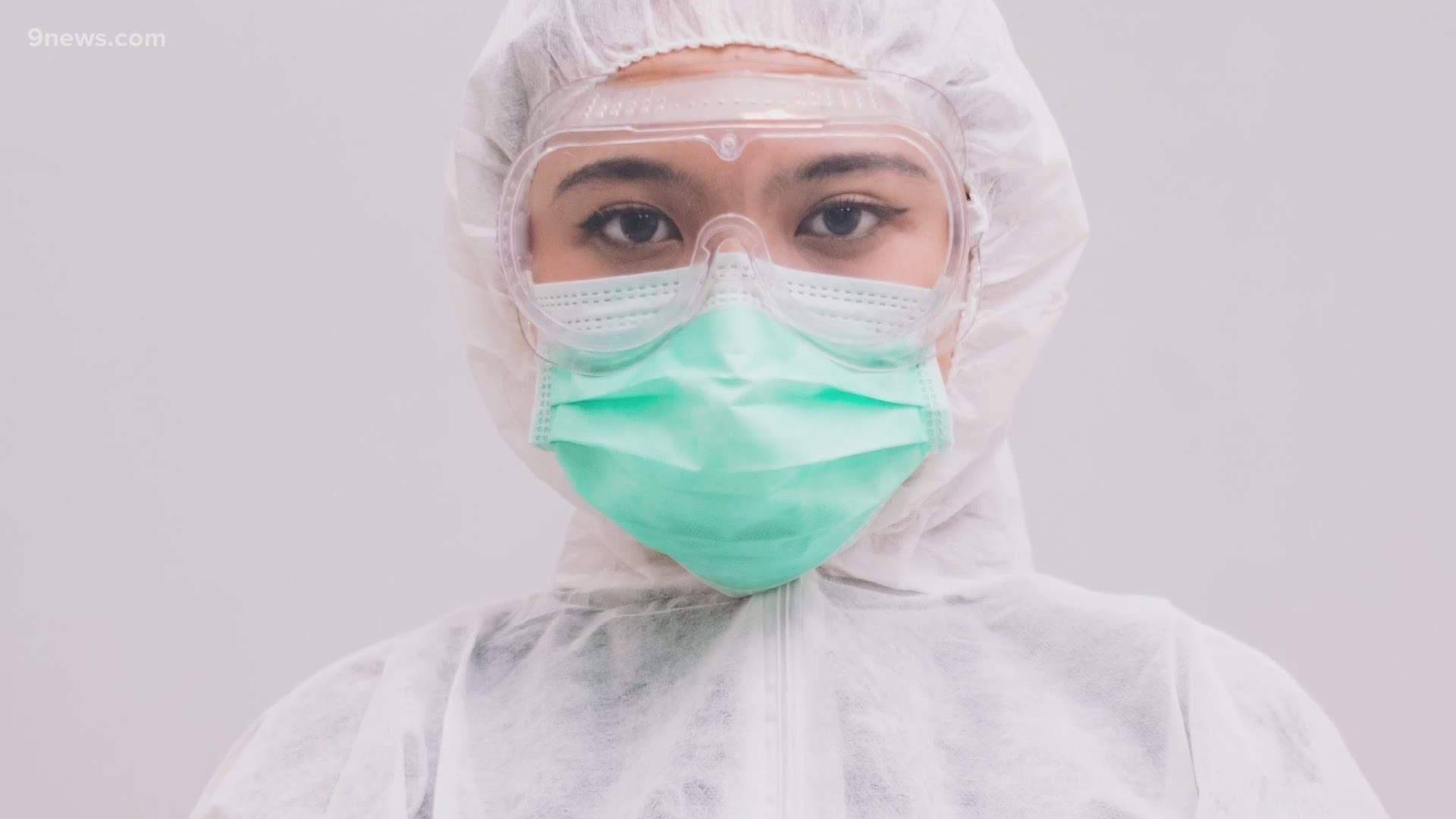DENVER, Colorado — In Colorado, challenges acquiring personal protective equipment (PPE) have improved but the state is still running into bumps in the supply chain for items like N95 masks and gloves.
Meanwhile, 99% of hospitals in the state report having the PPE they need for at least the next week.
The Director of the Colorado Office of Emergency Management, Dr. Michael Willis, said the state's goal for N95 masks is significantly higher than what he is able to acquire.
"I'm at about 3.23% of my target," he said.
Willis and his team have also had trouble finding gloves, meeting only 23% of the target so far.
Julie Lonborg with the Colorado Hospital Association told 9NEWS both items have been problematic for Colorado hospitals in the past.
Now, they report "being in better shape than they have been in general," Lonborg said.
For example, Presbyterian St. Luke's Medical Center and Rocky Mountain Hospital for Children, both HealthONE hospitals, report having enough N95 masks for two to three months based on current usage.
"When the pandemic started, we probably had a seven- to 10-day supply on hand. Now, that’s up to about two months because of our vigorous monitoring and our ordering," said Dr. Reginald Washington, the chief medical officer for both hospitals.
Washington has relied on the nationwide HealthONE network to identify gaps and fill them by redistributing supplies where they are needed most.
It's a strategy Lonborg said has been effective at the federal level in conserving PPE but Washington said he believes could be streamlined in the future.
Willis and his team are providing PPE for populations beyond hospitals and have been since the beginning of the pandemic when the number of people in need of PPE skyrocketed suddenly.
"We haven't used PPE in our schools since the Spanish Influenza," Willis said. "That's just one example of a population that never used PPE that now needs it."
The increased demand stressed the supply chain and, according to Willis, fractured the system. He described navigating it now as trying to piece Humpty Dumpty back together.
"The PPE supply system essentially failed," he said. "It collapsed under the weight of that demand. So, we had a broken supply chain almost immediately that continues to struggle to come anywhere near the requirements."
According to Lonborg, in the event of a significant surge in cases, most hospitals would be concerned about the availability of PPE "because the supply chain has remained unreliable and a little bumpy."
Washington said he believes "there are a lot of opportunities to do this differently the next time."
For the time being, suppliers are beginning to deliver orders to the state with some regularity. Colorado has shifted its focus from third-party international suppliers to domestic ones, inking long-term contracts with Honeywell and McKesson.
Willis said he is optimistic about the state meeting targets for N95 masks and gloves but he expects conditions will persist "for quite a few months."
"It will be a slow and painful slog but down at the state’s emergency operations center, there is no quit," he said. "They will not give up until we get there."
In the meantime, Willis asked the general public to rely on cloth face coverings for protection.
Washington echoed the request with the reminder that "the pandemic is still with us and until we get an effective vaccine that is widely distributed, I think handwashing, social distancing, and wearing a mask are the three things that everyone should and hopefully will do."
RELATED: Hospitals worry of shortages as first responders, medical workers use more protective equipment
SUGGESTED VIDEOS: COVID-19 Coronavirus

